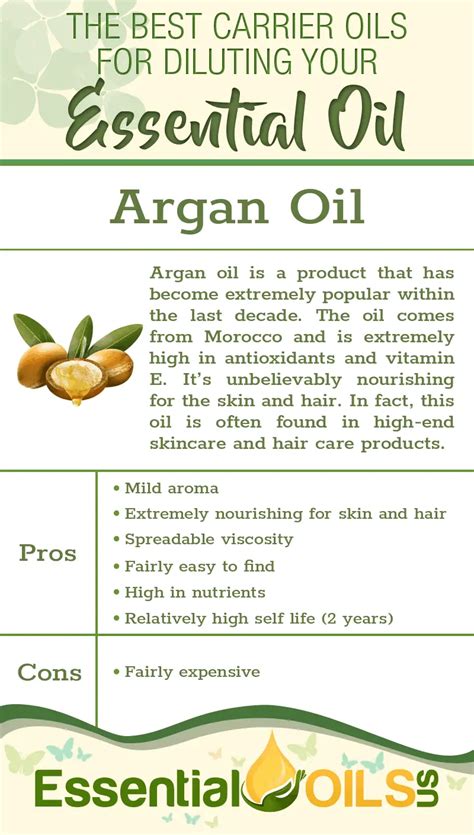Essential oils are highly concentrated plant extracts that offer a wide range of therapeutic and aromatic benefits. However, due to their potent nature, they cannot be applied directly to the skin or inhaled without potential adverse effects. This is where carrier oils come into play, acting as diluting agents that allow essential oils to be safely used topically and aromatically.

What Are Carrier Oils?
Carrier oils are vegetable-based oils that are derived from the seeds, nuts, or kernels of various plants. They are chosen for their emollient, nourishing, and non-irritating properties. When essential oils are blended with carrier oils, the resulting mixture becomes less concentrated, making it suitable for external application or inhalation without causing skin irritation or respiratory distress.
Choosing the Right Carrier Oil
Selecting the appropriate carrier oil is crucial for maximizing the benefits of essential oils. Different carrier oils possess unique properties, such as absorption rates, shelf life, and specific therapeutic effects. Consider the following factors when choosing a carrier oil:
- Skin Type: Match the carrier oil to your skin’s needs. Lighter oils like almond or grapeseed are suitable for oily or acne-prone skin, while richer oils like coconut or jojoba are ideal for dry or mature skin.
- Purpose: If desired, choose a carrier oil that complements the therapeutic properties of the essential oils being used. For example, lavender essential oil can be blended with calming carrier oils like chamomile or clary sage.
- Absorption Rate: Carrier oils with higher absorption rates, such as avocado or apricot kernel oil, penetrate the skin more quickly, providing deeper benefits.
- Shelf Life: Choose carrier oils with longer shelf lives, such as fractionated coconut or castor oil, to avoid spoilage and loss of efficacy.
Benefits of Using Carrier Oils
Incorporating carrier oils into your essential oil routine offers several advantages:
- Safety: Carrier oils dilute essential oils, reducing the risk of skin irritation and respiratory issues.
- Enhanced Absorption: Carrier oils facilitate the absorption of essential oils into the skin, allowing them to penetrate deeper and deliver their therapeutic effects more effectively.
- Nourishment: Carrier oils are rich in vitamins, antioxidants, and fatty acids, providing additional nourishment and protection to the skin.
- Versatility: Carrier oils can be used in a variety of applications, including aromatherapy, massage, rollerball blends, and skincare products.
Table 1: Properties and Uses of Common Carrier Oils
| Carrier Oil | Properties | Common Uses |
|---|---|---|
| Almond oil | Light, emollient, high in vitamin E | Facial care, massage, aromatherapy |
| Argan oil | Rich in antioxidants, moisturizing | Hair care, skincare, facial care |
| Coconut oil | Fractionated or cold-pressed, moisturizing, antibacterial | Massage, skincare, hair care |
| Grapeseed oil | Light, non-greasy, high in antioxidants | Carrier for dry oils, skincare, massage |
| Jojoba oil | Similar to skin’s sebum, moisturizing, regulating | Facial care, scalp care, hair care |
Applications of Essential Oil Carrier Oils
The versatility of carrier oils extends to numerous applications:
- Aromatherapy: Diffuse essential oils blended with carrier oils to create a calming or uplifting atmosphere.
- Topical Use: Dilute essential oils with carrier oils for massage, body oils, and skincare products.
- Inhalation: Add a few drops of essential oil and carrier oil blend to a hot bath or steam inhalation for respiratory relief.
- Hair Care: Create hair masks or serums by blending essential oils with carrier oils to promote hair growth, reduce dandruff, or add shine.
Risks and Precautions
While carrier oils are generally safe for most people, there are a few precautions to consider:
- Always dilute essential oils before using them with carrier oils.
- Do a patch test on a small area of skin before applying carrier oil blends to a larger surface.
- Avoid carrier oils that have expired or have been stored improperly.
- Some carrier oils, such as evening primrose oil, may interfere with certain medications. Consult with a healthcare professional if concerned.
FAQs
- Which carrier oil is the best? There is no one “best” carrier oil, as the choice depends on individual needs and preferences.
- Can I use olive oil as a carrier oil? Olive oil is not an ideal carrier oil due to its relatively high absorption rate and potential for rancidity.
- How do I store carrier oils? Store carrier oils in a cool, dark place away from direct sunlight.
- Can I use carrier oils on my face? Yes, carrier oils are suitable for use on the face, provided they are non-comedogenic.
- What is the ideal dilution ratio for essential oils? The ideal dilution ratio varies depending on the essential oil being used and the desired application. A good starting point is 2-3% essential oil to 98-97% carrier oil.
- What is a novel application of carrier oils? Carrier oils can be used as a diluent for essential oils in DIY soy candles or wax melts, creating relaxing or aromatic environments.
Conclusion
Essential oil carrier oils play a vital role in the safe and effective use of essential oils. By understanding the properties and benefits of different carrier oils, you can enhance the therapeutic experience of essential oils while protecting your skin and respiratory health. Whether for topical application, inhalation, or aromatherapy, carrier oils offer a versatile and beneficial way to harness the power of essential oils.
